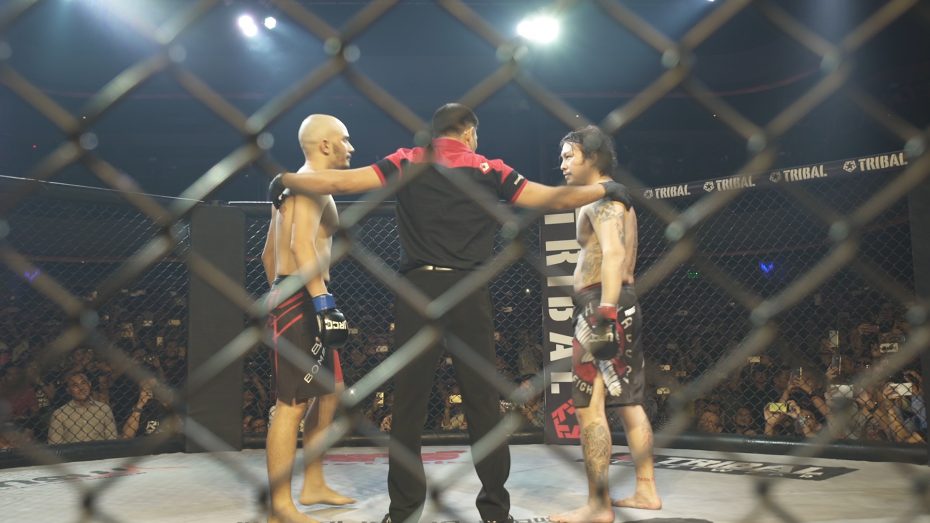For the latest installment in its weekly film screenings, Concordia’s chapter of Cinema Politica featured Eshei Mesina’s Beastmode: A Social Experiment, a documentary that is part exposé on the horrors of Filipino President Rodrigo Duterte’s regime, and part docudrama of how a fabricated viral video became a nationally reported mixed martial arts (MMA) fight. These seemingly unrelated subjects coalesce in a film that tackles the perception of violence in a country where drug users, and even those tangentially related to them, are killed by the police daily in the name of a war on drugs.
The film begins with shaky footage of Duterte delivering a speech to an audience of citizens protesting against the brutal treatment of drug users and imploring the president to fulfill his campaign promises, such as increasing minimum wage. This frantic moment defines Beastmode, as its hectic pacing and visual style mirrors the social panic as desperation sets in among Duterte’s many opponents. The film then takes a hard turn and focuses on Baron Geisler, a celebrated Filipino actor. Mesina had the idea of orchestrating an impromptu brawl between Baron Geisler and fellow actor Kiko Matos. The fight would be captured on a phone camera with the hope of going viral on the internet. The catch would be that the fight would occur in front of a sign calling for the release of a political prisoner.
The social experiment aimed to determine whether anyone would notice the sign itself or if viewers would ignore it and instead simply indulge in the fight. Beastmode intercuts the development of the ever-growing hoax with more of Duterte’s speeches, an apparent commentary on how Duterte’s call for extreme violence is a symptom of the country’s admiration for brutality. Unsurprisingly, most viewers fell for the bait, choosing to indulge gossip regarding Geisler and Matos instead of supporting the political prisoner. Some tabloids went as far as to make up outlandish theories about the actors’ motivations and personal history. The internet made it clear that they wanted more from the two actors; one fight was not nearly enough.
Eventually, the initial premise of the experiment is dropped entirely: The “feud” between the two actors has become a national sensation. Despite the director not intending his social experiment to reach such a scale, Geisler and Matos agree to fight in a genuine MMA match, and throngs of people show up for the spectacle. Once again, Mesina implies, the public has chosen to focus on trivial violence rather than pressing political issues. At a certain point, the movie becomes a parody of itself, promoting the violence it set out to criticize. The film never shies away from its unexpected twists and, as a result, Beastmode provides an incredibly earnest snapshot of the political climate in the Philippines.
The film’s versatility is its strongest draw, and it makes Beastmode important both as a political statement and a piece of entertainment. Serious, upsetting scenes involving Duterte are often punctuated with an onslaught of chaotic, colourful internet memes about Duterte and Geisler along with animated explosions, juxtaposing political discourse in the Philippines and how the public consumes it. The film prides itself on depicting the country’s crisis with candor and, at times, wit.
With this portrayal, Mesina creates one of the most honest depictions of the war on drugs yet. Geisler and Kiko’s climactic fight is the lens through which Beastmode inspects society’s attitude towards violence, and though the event has no bearing on the Filipino political climate, it sheds light on life in the Philippines far more than a presidential speech ever could.








